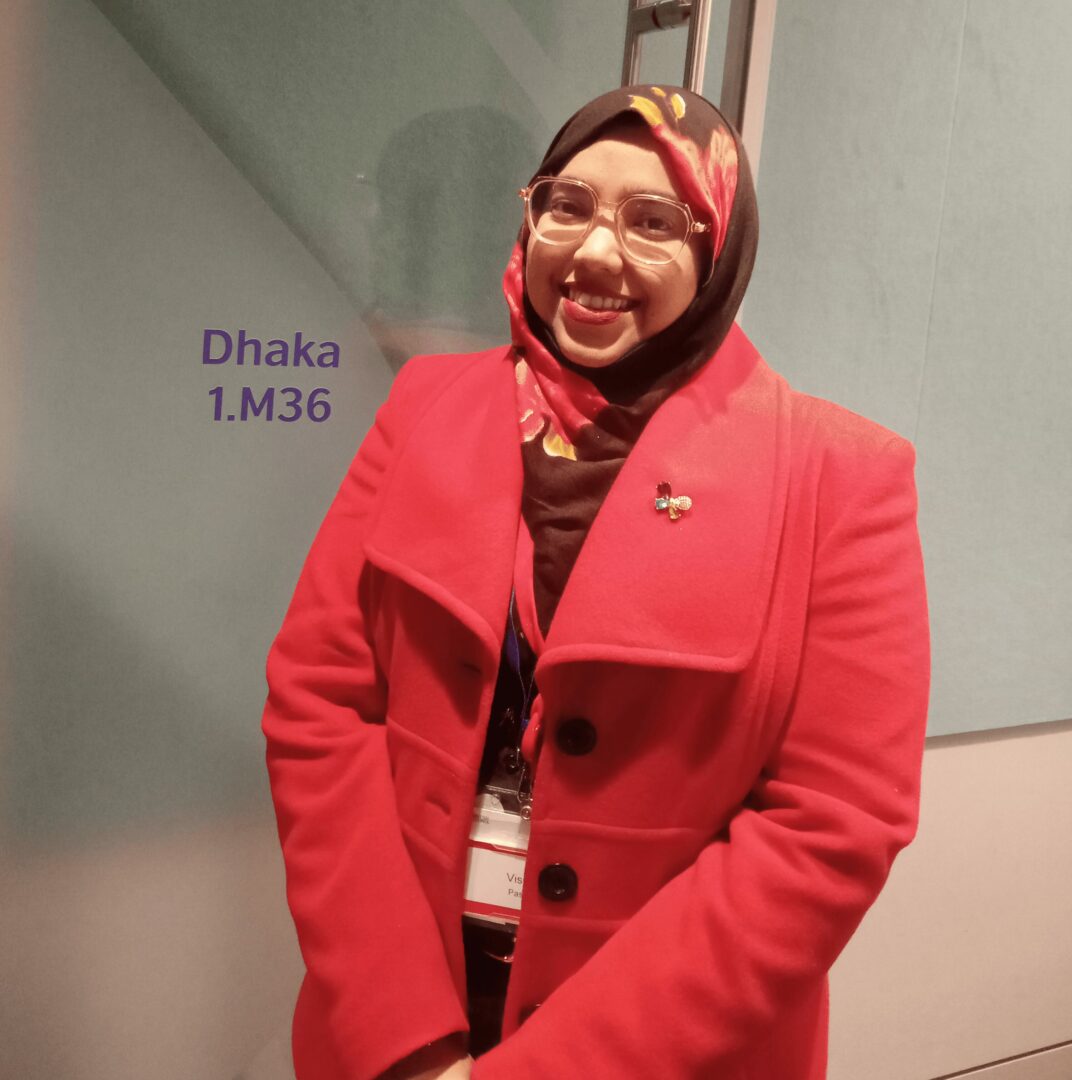We’re excited to introduce you to the always interesting and insightful Sumaiya Akhter. We hope you’ll enjoy our conversation with Sumaiya below.
Sumaiya, so good to have you with us today. We’ve got so much planned, so let’s jump right into it. We live in such a diverse world, and in many ways the world is getting better and more understanding but it’s far from perfect. There are so many times where folks find themselves in rooms or situations where they are the only ones that look like them – that might mean being the only woman of color in the room or the only person who grew up in a certain environment etc. Can you talk to us about how you’ve managed to thrive even in situations where you were the only one in the room?
First of all, being the only one in the room who looks like me is definitely a challenging situation. Sometimes, it feels like I’m part of someone else’s tokenism agenda. But over time, I’ve come to see that it also puts me in a position to voice my opinion, not just for myself, but as a representative of others who look like me and might not always have that seat at the table.
I’m a Muslim woman who wears the hijab, I’m from a Bangladeshi background, and I grew up as a Third Culture Kid while my parents were living in Saudi Arabia. All of that sets me apart in many spaces I walk into. At first, I just wanted to blend in, trying not to stick out like a sore thumb. But as I gained more experience, I realized that being different doesn’t mean I’m out of place. It can also mean that people might actually want to hear my perspective because it’s different.
For example, I acted in a medical drama during my study period at the University of Exeter with the collaboration of its Medical School, titled “Not Another Bystander Training”- to be premiered on September 10th, 2025- where other actors were from the departments of Literature, Drama, and Medical School, unlike me who is from ELT (English Language Teaching) background. I stood out in the audition by representing who I was through my experiences, and was welcomed to present my identity as a character in the drama.
I started to use my differences — whether it’s my appearance or my way of speaking- to boldly negotiate my presence in the room. I learned that being passive in these moments often means missing the chance to be heard, to lead, and to represent a voice that doesn’t always get the mic. And that’s really how I’ve learned to be successful, not despite my differences, but by leaning into them.
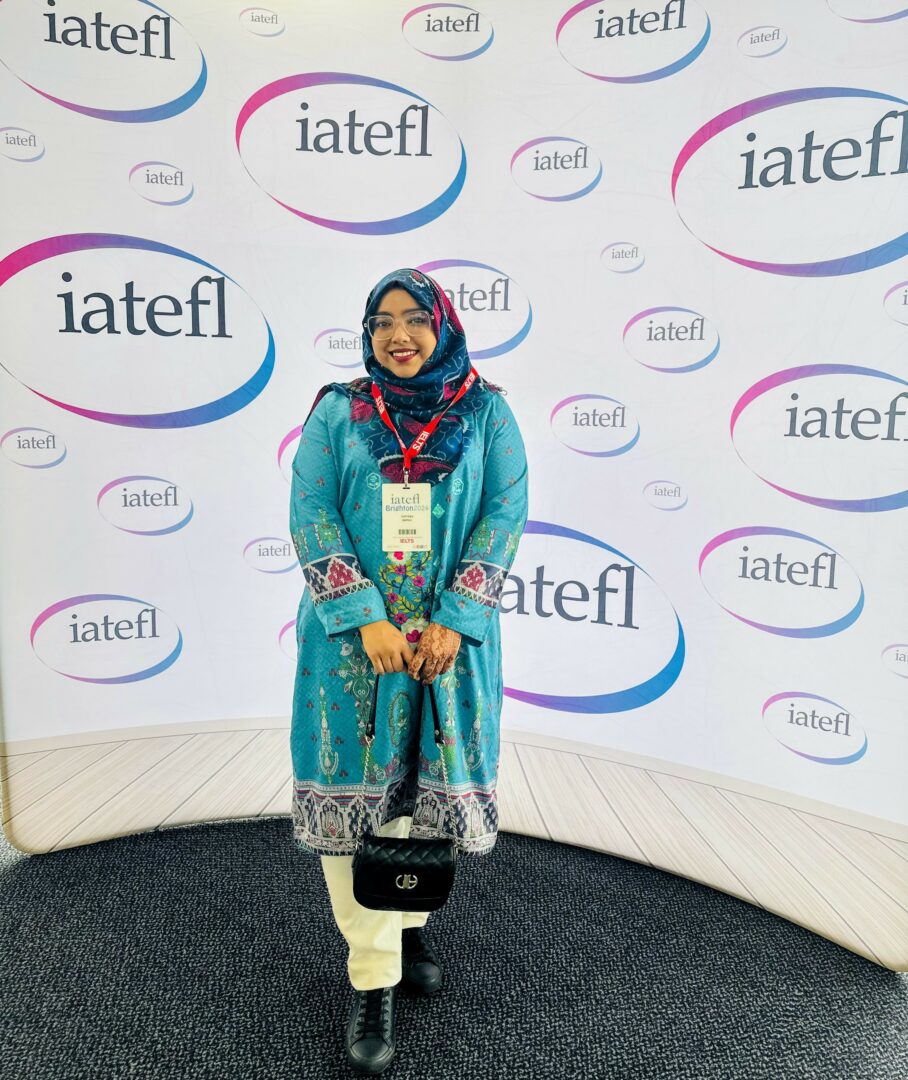
Let’s take a small detour – maybe you can share a bit about yourself before we dive back into some of the other questions we had for you?
To explain my passion and profession, I have to briefly explain my background.
I was born in Saudi Arabia and raised there until I was a teenager. When my parents decided to move back to Bangladesh, it was incredibly difficult for me to adjust — to the people, the classrooms, even the day-to-day environment. My background placed me in a unique position, and while my parents were supportive, there were moments when even they couldn’t fully understand the emotional struggle I was going through. I was leaving behind everything I knew to step into the unknown.
One of the biggest challenges was language. I wasn’t fluent in Bangla at the time, and that set me apart in the classroom. I became “the one who couldn’t speak the native language fluently.” That feeling of being out of place stayed with me well into adulthood, as I kept searching for a sense of belonging.
I eventually found solace in writing — stories, poems, thoughts — all in English. That creative outlet helped me discover my voice and led me to switch from Science to English for my university studies. I enrolled in the Department of English at the University of Dhaka, and honestly, that’s where I started to develop a clearer sense of my identity.
While I was still an undergraduate, I joined She Leaps International as a grassroots advocate and later became a Special Emissary of South Asia. I began working closely with the founder, Evelyn Oluchukwa. We initially connected through Facebook and discovered a shared passion for empowering women and promoting accessible English education. We spent hours brainstorming how to offer quality English instruction to Nigerian entrepreneurs and young learners at low cost. That’s really how She Leaps started to grow into what it is today.
After graduating in 2020, I faced another unexpected challenge: the global pandemic. I started small online workshops for teachers in my hometown, helping them use technology effectively in their virtual classrooms. These sessions really made a difference for primary and secondary teachers working in under-resourced schools.
In 2021, I became a Lecturer in English at a private university in Chattogram, my hometown. My practical experience in the classroom allowed me to understand and learn much about what is effective in Bangladeshi tertiary level classroom. During my time there, I was awarded the A.S. Hornby Educational Trust Scholarship, which is given to educators aiming to create meaningful change in their communities. With that opportunity, I went on to pursue an M. Ed in TESOL at the University of Exeter in the UK. While there, I also worked as a supply teacher in secondary schools. This gave me valuable exposure to the UK education system.
Right now, I’m focused on expanding my impact both as an English instructor and as the Vice-President at She Leaps International. I’m especially excited about creating sustainable learning models for marginalized learners, not just in Bangladesh or Nigeria, but globally. I also position myself as an advocate for Third Culture Kids — and adults — in Bangladesh, who often face emotional and cultural challenges when transitioning and adapting to life here. I believe my unique blend of academic background, field experience, and cross-cultural insight brings a different voice to the table. I hope it encourages others to find strength in their differences as well.
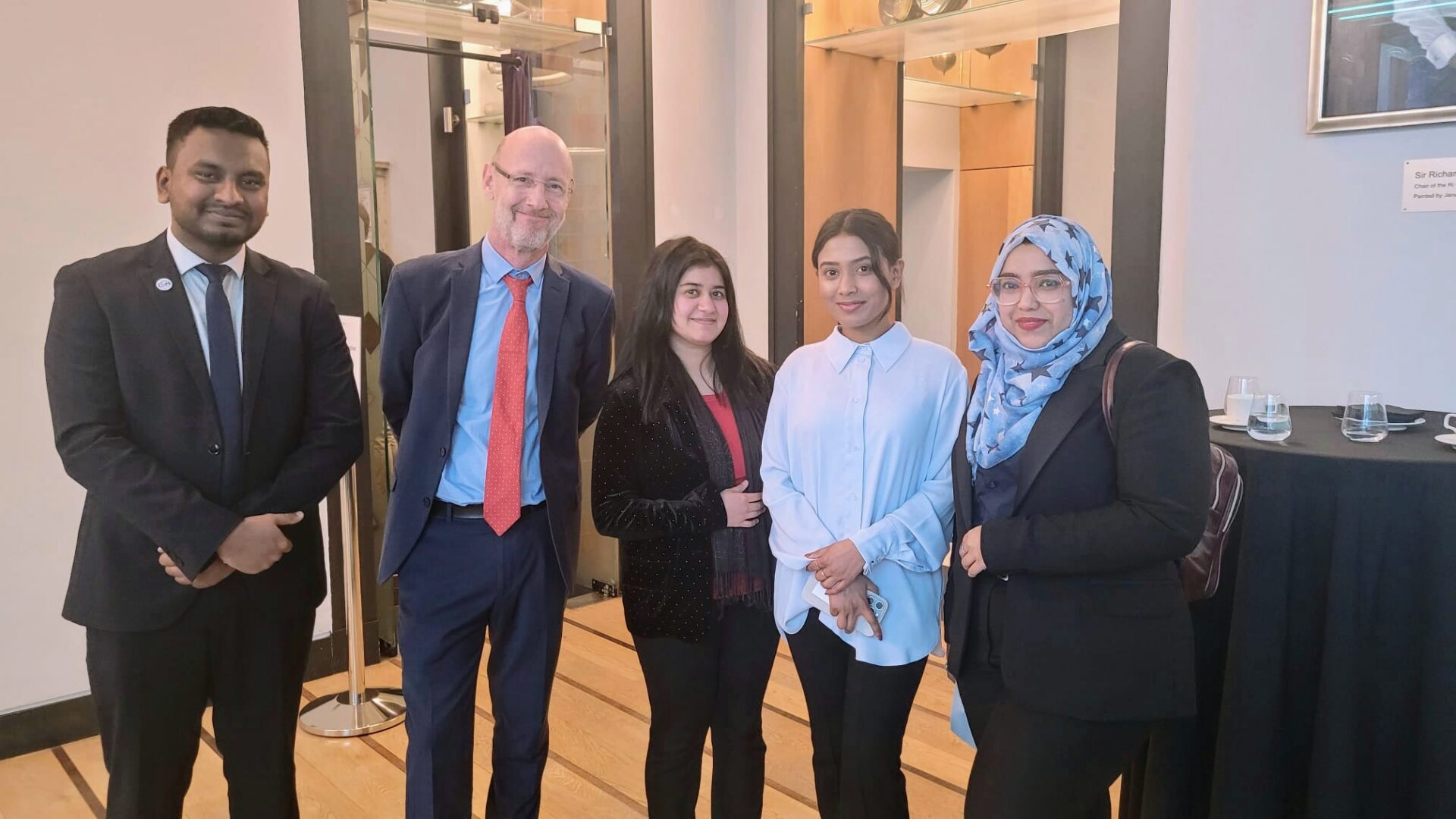
There is so much advice out there about all the different skills and qualities folks need to develop in order to succeed in today’s highly competitive environment and often it can feel overwhelming. So, if we had to break it down to just the three that matter most, which three skills or qualities would you focus on?
Looking back, I think the three most impactful qualities in my journey have been resilience, cultural adaptability, and a commitment to lifelong learning.
Resilience was something I didn’t know I had until I was forced to draw on it. I had to rebuild everything at the age when most people gain some form of footing — from friendships to language skills, and it wasn’t easy. But that experience taught me how to keep showing up, even when I didn’t feel like I belonged. For anyone early in their journey, I’d say: resilience doesn’t mean never struggling. It means moving through the struggle, one small step at a time.
The second is cultural adaptability. From my experience, where I didn’t fit neatly into one identity, I was always navigating between cultures, especially as a third-culture kid. At first, I saw that as a disadvantage. Now I see it as a strength. It’s helped me build bridges with people from vastly different backgrounds, whether in the classroom or leadership meetings. If you’re someone who feels like you don’t quite belong anywhere, I encourage you to embrace that in-betweenness — it can become one of your most powerful assets.
Lastly, a commitment to lifelong learning has shaped every stage of my professional life. From switching academic tracks, to leading grassroots work at She Leaps, to pursuing my M.Ed. in TESOL, I’ve always tried to stay curious and open to growth. Learning doesn’t always happen in a classroom — sometimes it’s in a conversation, a failed project, or a chance encounter. My advice would be to stay teachable. That mindset opens more doors than any single qualification ever could.
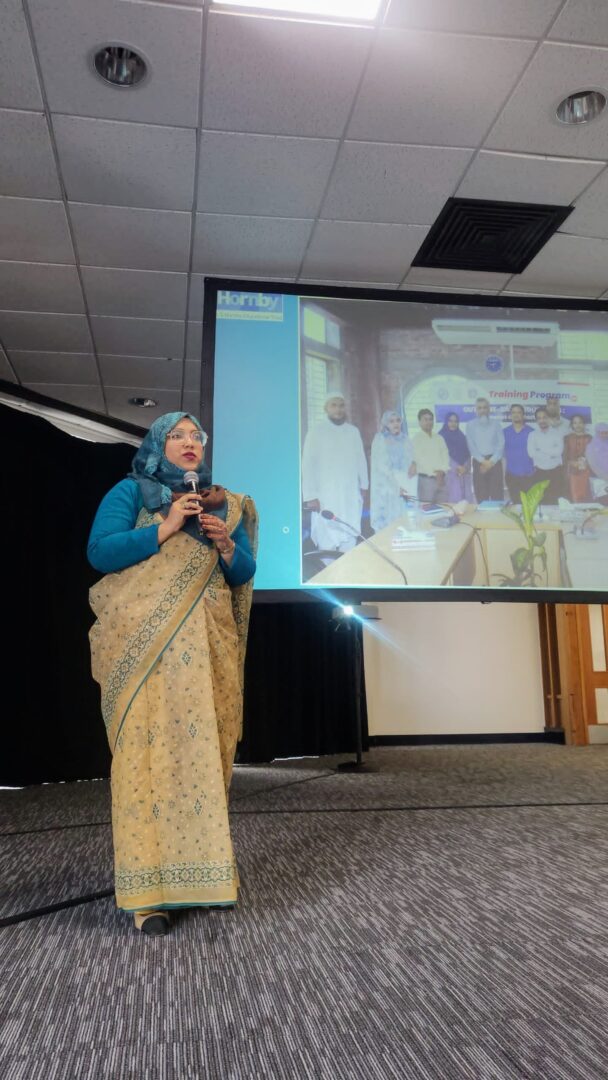
Looking back over the past 12 months or so, what do you think has been your biggest area of improvement or growth?
Over the past 12 months, I’ve experienced one of the most transformative phases of my professional journey. The first half of the year was spent in the UK, where I completed my M.Ed in TESOL and worked in secondary schools. That experience gave me fresh insight into different educational systems and classroom dynamics. The second half brought me back to Bangladesh, where I briefly returned to my previous role as a Lecturer in English.
However, it didn’t take long for me to realize that I had outgrown that position. I had new ideas and research interests I wanted to explore, particularly around Informal Digital English Learning at the tertiary level. This project required me to work with students from a wide range of academic disciplines, not just within English departments. I knew I needed a broader platform to engage with this kind of work.
So, I made a bold decision — I resigned from my secure teaching position and transitioned into a new role as an ESP and EAP instructor at a different institution. It was a big leap, especially considering how comfortable I had grown in my previous role. A year ago, I’m not sure I would have taken that risk. But my exposure to more diverse learning environments, especially during my time in the UK, gave me the confidence to push beyond what felt safe and familiar.
Looking back, this has been my biggest area of growth: learning to trust that outgrowing something doesn’t mean failure. It means it’s time to level up. And I’m excited to see where that mindset takes me next.
Contact Info:
- Website: https://sheleaps.org/
- Linkedin: https://www.linkedin.com/in/sumaiya-akhter-5302a0127
- Other: https://www.facebook.com/sheleapsin
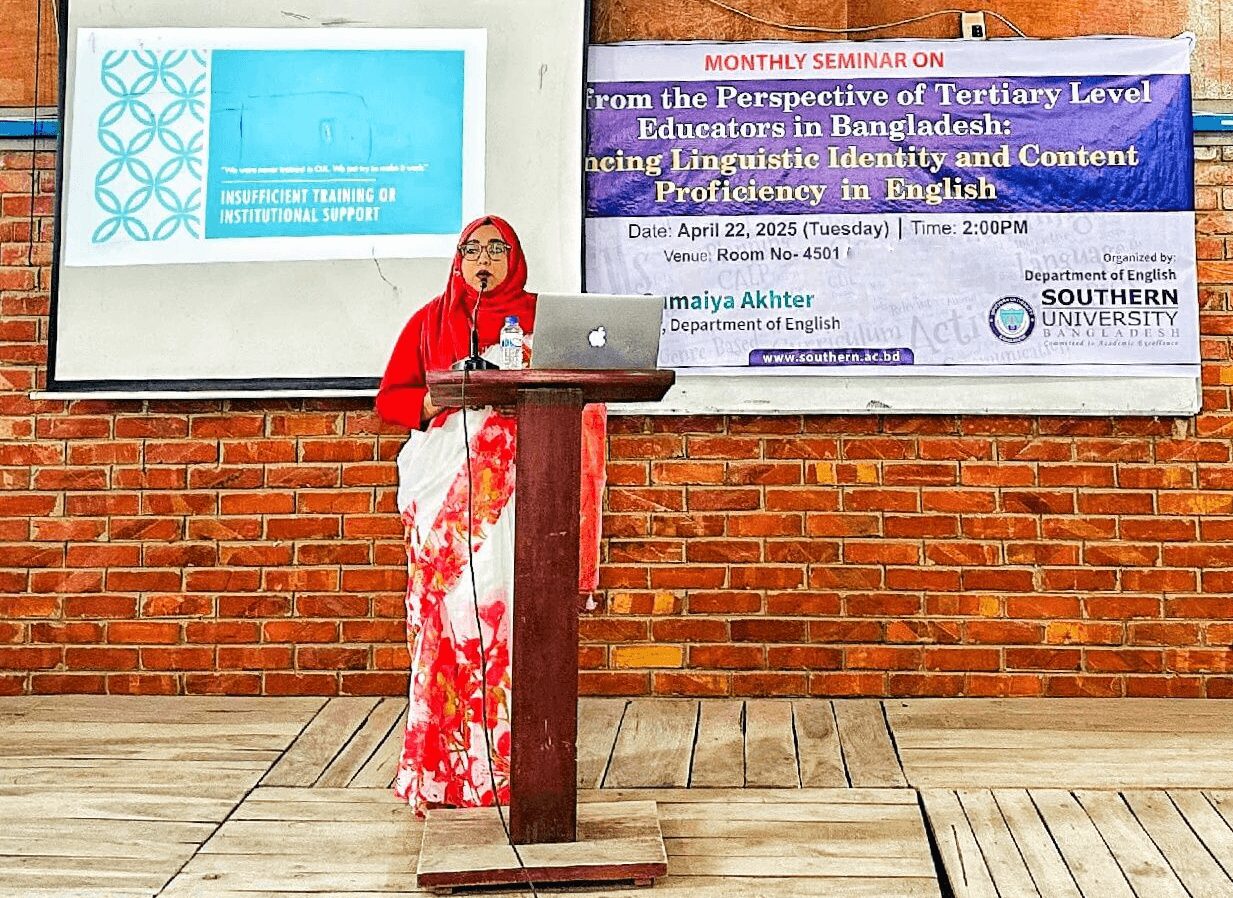
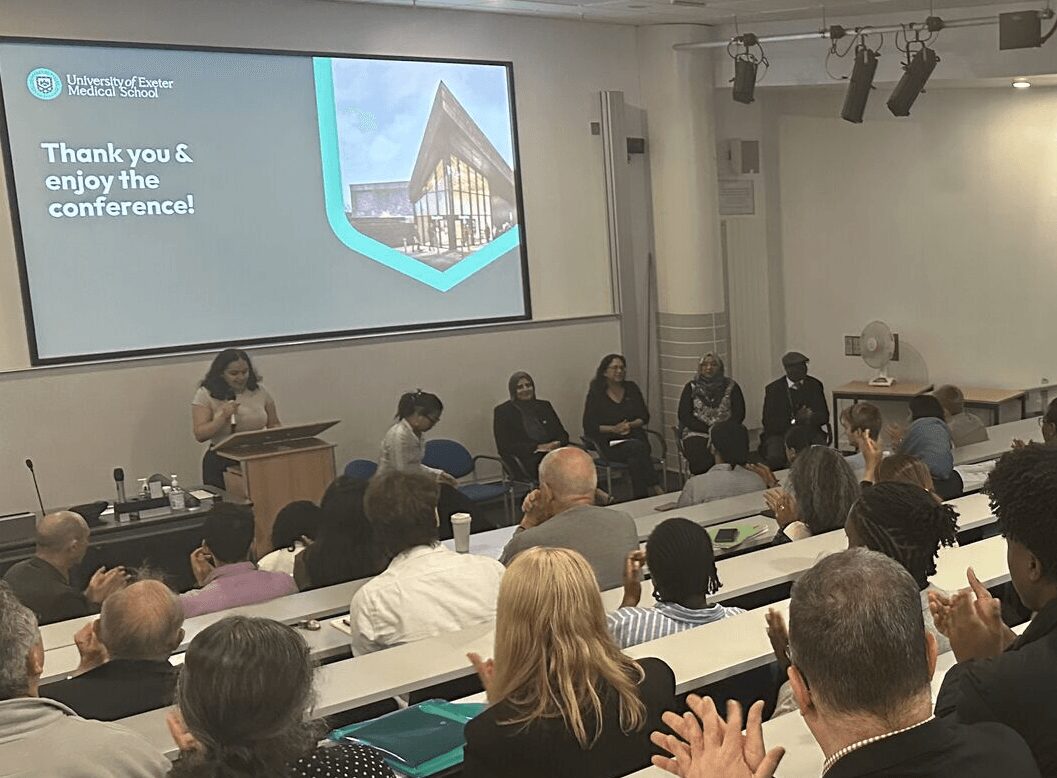
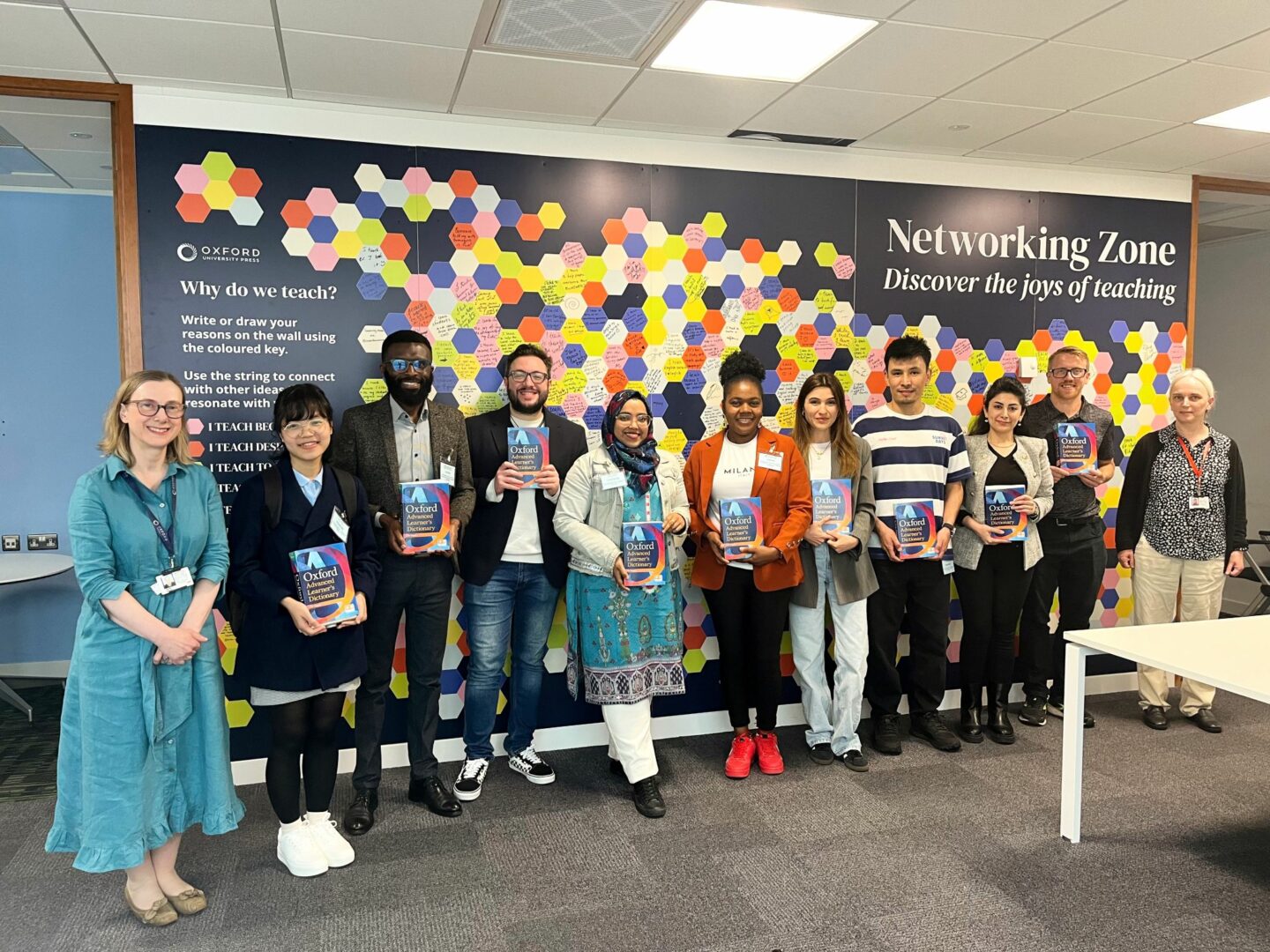
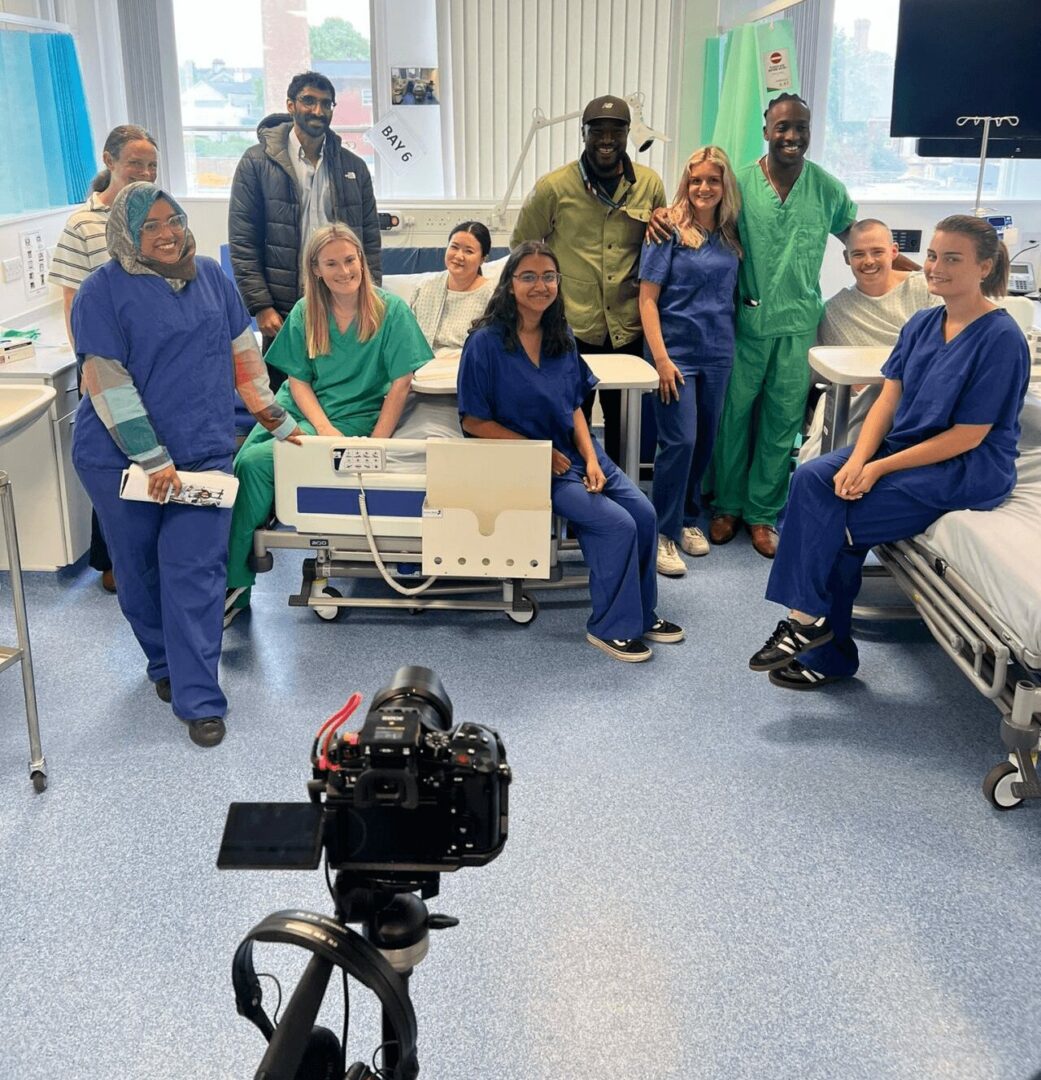
so if you or someone you know deserves recognition please let us know here.

